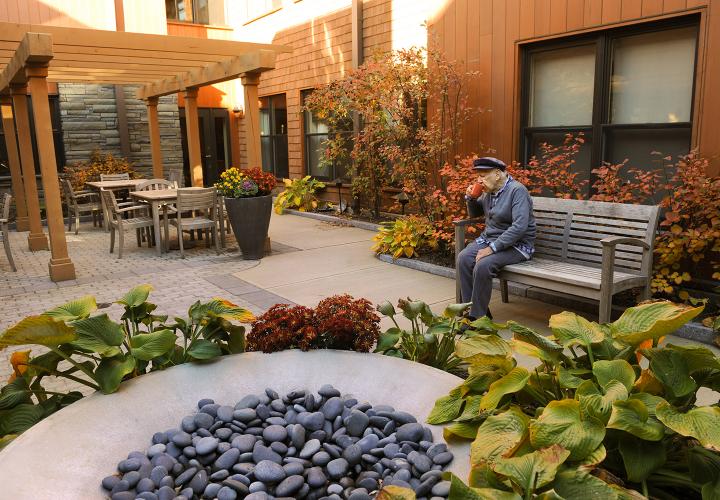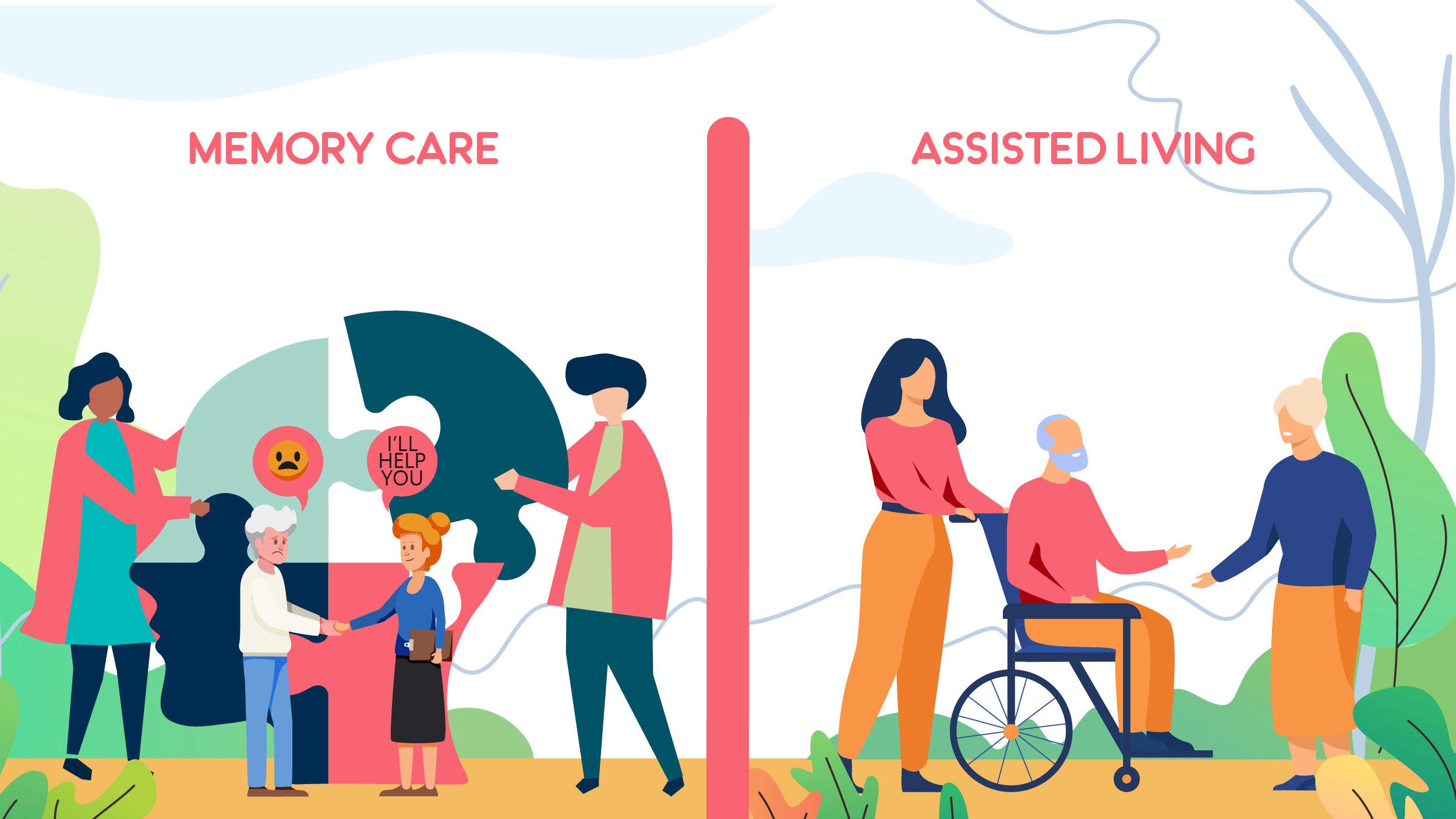Enhancing Quality of Life with Trusted Alzheimers Care Charlotte Programs
Enhancing Quality of Life with Trusted Alzheimers Care Charlotte Programs
Blog Article
Creating a Safe and Helpful Atmosphere for Alzheimer's Care
The creation of a safe and helpful environment for individuals with Alzheimer's is paramount in improving their high quality of life. This involves not just physical adjustments within the home, such as lessening hazards and including familiar elements, but additionally the implementation of organized routines and purposeful activities that satisfy their cognitive needs. Recognizing the psychological and psychological measurements of treatment can significantly affect their feeling of safety and link. Discovering these multifaceted approaches can expose critical understandings into efficient caregiving strategies that might change the everyday experiences of both individuals and caretakers.
Recognizing Alzheimer's Needs
Regularly, individuals with Alzheimer's condition show a series of needs that call for tailored approaches to care. As the problem progresses, cognitive decline manifests in different means, affecting memory, thinking, and even the capacity to do day-to-day activities. Caretakers need to recognize these progressing requirements to give appropriate support and ensure a greater top quality of life for those affected.
One essential element of understanding Alzheimer's needs is recognizing the significance of routine and familiarity. Individuals usually discover comfort in established patterns, which can lower anxiousness and confusion. Caregivers need to strive to develop structured everyday timetables that integrate significant activities lined up with the person's abilities and rate of interests.
Furthermore, reliable communication is critical. Individuals with Alzheimer's might battle to share themselves or comprehend intricate language. Caretakers must employ simple, clear language, usage non-verbal cues, and technique active paying attention to promote understanding and link.
Caregivers need to urge engagement in neighborhood tasks or family celebrations, advertising a feeling of belonging and purpose. Understanding these diverse needs is necessary for developing an encouraging care atmosphere.
Creating a Safe Home
Developing a risk-free home for individuals with Alzheimer's illness is vital to promoting and minimizing threats independence. Make certain that paths are well-lit and clear, as proper illumination decreases disorientation and improves flexibility.
Integrating flexible attributes is also important. Set up grab bars in restrooms and near stairways, and take into consideration utilizing non-slip mats in wet areas. Furthermore, utilizing different colors for wall surfaces and floorings can aid in differentiating spaces, aiding to minimize confusion.
Knowledge is very important for people with Alzheimer's. Customizing the setting with acquainted things and photos can enhance a sense of belonging and safety - Alzheimers Care Charlotte. It is also beneficial to have a designated location for everyday tasks, such as analysis or crafting, which can offer framework to their day
Last but not least, implementing a safe outside space enables safe expedition while attaching with nature. By attentively making the home environment, caregivers can significantly enhance the top quality of life for people living with Alzheimer's disease.
Enhancing Interaction Skills

Non-verbal interaction, consisting of facial expressions, motions, and touch, plays a critical function in sharing compassion and understanding. Keeping eye call and a tranquil behavior can improve the comfort degree of the person, advertising a sense of security.
Additionally, it is crucial to practice active listening. This involves being completely existing, showing persistence, and allowing the person to share themselves without disturbance. Repetition might be necessary; caretakers must be prepared to take another look at subjects or concerns, as people with Alzheimer's might battle with memory recall.
Additionally, utilizing aesthetic aids or cues, such as pictures or acquainted objects, can facilitate acknowledgment and involvement. Inevitably, improving interaction skills has to do with building trust fund and developing a setting where individuals feel heard, valued, and recognized, therefore improving their quality of life.
Urging Social Communication
Promoting meaningful social communications can significantly boost the wellness of people with Alzheimer's illness. Involving with others not just aids fight sensations of seclusion however likewise stimulates have a peek here cognitive function and psychological wellness. Structured social activities, such as team crafts, games and arts, or songs treatment, create chances for residents to connect with peers and caretakers, which can lead to enhanced state of mind and reduced anxiety.
Developing an inviting atmosphere that urges socialization is vital. This can be accomplished by setting up common rooms that assist in interaction, such as relaxing seating areas or task rooms. Furthermore, including acquainted and culturally relevant tasks can urge and stimulate memories engagement, permitting individuals with Alzheimer's to feel even more connected to their previous experiences.
In addition, caregivers should be trained to recognize and advertise social engagement among locals. Straightforward gestures, such as launching conversation or assisting in tiny team conversations, can assist people really feel valued and included. Routinely arranged get-togethers need to be regular yet adaptable, suiting differing levels of ability and interest. By prioritizing social interaction, we can considerably improve the lives of those living with Alzheimer's, fostering a sense of community and belonging.
Sustaining Caregiver Health

To sustain caregivers, organizations need to provide routine training and academic sources to enhance their understanding of Alzheimer's illness and caregiving methods. Giving accessibility to reprieve treatment services enables caregivers to take required breaks, lowering anxiety and fatigue - Alzheimers Care Charlotte. Furthermore, fostering a community through support system can promote emotional sharing and the exchange of useful suggestions among caregivers, creating a network of mutual support
Mental wellness sources, such as counseling solutions, can additionally be crucial in attending to the emotional toll caregiving can take. By focusing on caretaker health, we create a more lasting caregiving environment that not just profits the caretakers themselves however likewise boosts the total top quality of treatment obtained by individuals with Alzheimer's. Inevitably, supporting caretakers is a crucial part in cultivating a effective and thoughtful treatment setting.
Final Thought
Finally, the development of a supportive and risk-free atmosphere for people with Alzheimer's is necessary to enhancing their high quality of life. By focusing on safety and security through thoughtful design, promoting psychological health with acquainted elements, and advertising engagement with structured routines, caretakers can considerably influence the total experience why not try this out of those affected by this condition. Furthermore, supporting caregiver wellness is crucial, as it inevitably adds to a much more thoughtful and efficient care environment.
Rep might be necessary; caregivers need to be prepared to revisit subjects or questions, as individuals with Alzheimer's may have a hard time with memory recall.

Report this page